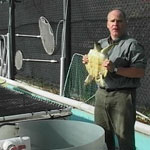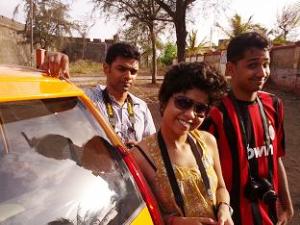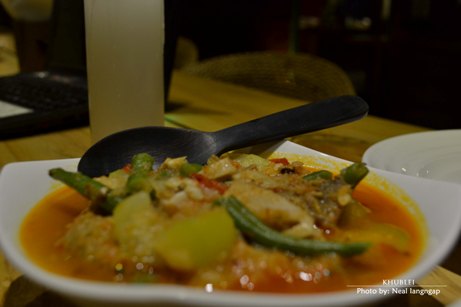“Let’s talk a little today about folks coming to this country chasing the Amercian Dream?” Maitreyee Angelo, the charming moderator started the conversation in the living room of the home of the gracious hostess of the evening, Roopa Sharma.
Mitra Phukan, the brand ambassador of The Thumb Print (www.thethumbprintmag.com), gave an update about the webzine, and the purpose of the evening’s informal conversation.
The group, spanning 25 adults of varying ages, from different professional backgrounds -- engineers, teachers, professors, doctors, IT, students, participated in earnest.
Everyone had a story to tell.
That is how it is with each immigrant. What makes folks leave their own motherland, their family and friends, their known customs and rituals, their comfort zone to come to an alien land, to live amongst aliens and to adopt an alien culture?
When we discuss immigrants coming to America to pursue an American dream, there is an underlying assumption of people fleeing religious persecution, terrifying wars, extreme poverty coming on a boat under perilous condition, kissing the ground of their new country on arrival at New York City. These folks who get a new lease of life, work hard and make it big in the ‘Land of Milk and Honey’. So reads the typical American dream.
But there is another group of immigrants that America attracted over her entire history of existence --- the worldly intellectuals, the creative entrepreneurs, seafaring adventurers, multi-talented artists, competitive sportsmen and qualified professionals -- that would help build and keep America on the ‘cutting edge'; of the world. A ‘Superpower'; to reckon with’, whether in the area of technological progress, world politics or humanitarian breakthroughs.
Every immigrant’s story of his or her journey and quest of the American dream varies widely.
In Roopa Sharma’s home, the immigrants who gathered that evening were mostly from the second group. Many professionals that have been in this country for several decades; well-settled, contributing members in their fields, pillars of their communities - local and international.
And they had a lot to say!
Several of the engineers that came to this country in the seventies and eighties shared their story of how they were recruited by the multinational companies either because of their professional knowledge and work ethics history. Several of them had lucrative jobs with Oil India or the State Government. “We did not have problems finding solid jobs back home and if truth be told, we faced no major political or religious persecution,” said one. Many came with short term work permits either on deputation from their Government or Corporate jobs or for training purposes. But once they worked in this country they were loath to return.
Why? Because, “There was no bureaucratic red-tapism, no bribery of any kind in this country. One can easily earn an honest living with no political favors. There is dignity of labor in the workplace. Everyone is considered equally valuable in the team. This is in direct contrast to the work ethos/culture in India where the boss is addressed as ‘sir’. And everyone has to cater and pander to his wishes.”
A neurosurgeon, who worked for a while in the UK before migrating to the USA spoke of the positive experiences in the first few days of arriving in this country. “Unlike other countries, America being a melting pot of immigrant cultures, everyone here expects that you have come to make this country your own. You are an American and like any other American you are accorded the same opportunities and the same rights from day one. You feel very welcome.”
The other significant contributing factor according to many of the attendees at the conversation was the ‘the hassle free day-to-day living condition of the new country’. No standing in lines to pay the electric bill or to get a gas cylinder. No concerns about people tapping into your phone and electric supply line. No floods. No roads riddled with potholes. Friendly and efficient Customer Services in all offices, agencies, and in stores makes life so much easier. You pick up that phone and consider the job done. Something we cannot dream of happening back home’
Indeed the ‘hassle free living’ came up in the stories of several participants. A young couple, who recently migrated to the USA spoke eloquently about the quality of life in the USA compared to India. “Back home we have to spend hours in traffic going from place A to place B, and every free minute of the day was spent trying to make things work. There is no time to spend with the family on a daily basis leave alone have time to pursue ones hobbies or passions.”
When asked if they missed their parents or the friends, or the Indian way of life, the wife laughed, “I speak with my mom every day, sometimes two to three times a day, like I did back home.” Unlike the older immigrants that came in the seventies, the younger generation does not miss family or friends as much. Facebook, Skype, social media provides easy access to their loved ones. “These days the cultural divide between the East and the West have narrowed considerably. The younger generation in India is exposed to the McDonalds, the Pizza Huts, and malls enough. For this generation, the West is not as different as it was for us’, said a teacher from Naperville. The world has indeed become a much smaller place.
An engineer from Wisconsin stated his reason for deciding to make States his permanent home as to ‘secure a better future’ for his children. The ready availability of top quality educational opportunities and the flexibility for the kids to pursue their dream career is what persuaded me to stay back.’
Adults who as children were born or raised in USA and who attended the conversation however, saw things differently. Contrary to their parents viewpoint, they feel, “The economy in America has changed considerably. The financial future is not as rosy anymore compared to when our parents first came to this country. The young adults these days find it hard to get better paying jobs without entering a professional college pathway,” said a young Physician. Another PhD student elaborated that ‘a liberal arts education at $30000 per year for 4 years does not guarantee an entry level job that will provide me with a lifestyle of my parents’ generation. Not with that kind of student loan. The future is very uncertain for us these days.’
‘Do you know any families that have returned back home because they feel India has much more to offer these days?’
That was the last question posed by Maitreyee. Everyone knew of someone who returned to India. But ‘does it work out?’ brought about mixed responses. The general consensus however was that families with younger children found it easier to make that transition specially if they worked for multinational companies, whereas returning back to India when the kids are older, having lived in this country longer made the readjustment harder for all’.
The allotted two hours of conversation flew by in the span of a minute.
It was hard to stop the flow of words! However the formal discussion had to end. It was time to feast. Roopa Sharma was firm in her request.
But I have to add - the informal conversation continued into the wee hours of the night, making the night even more memorable.







































